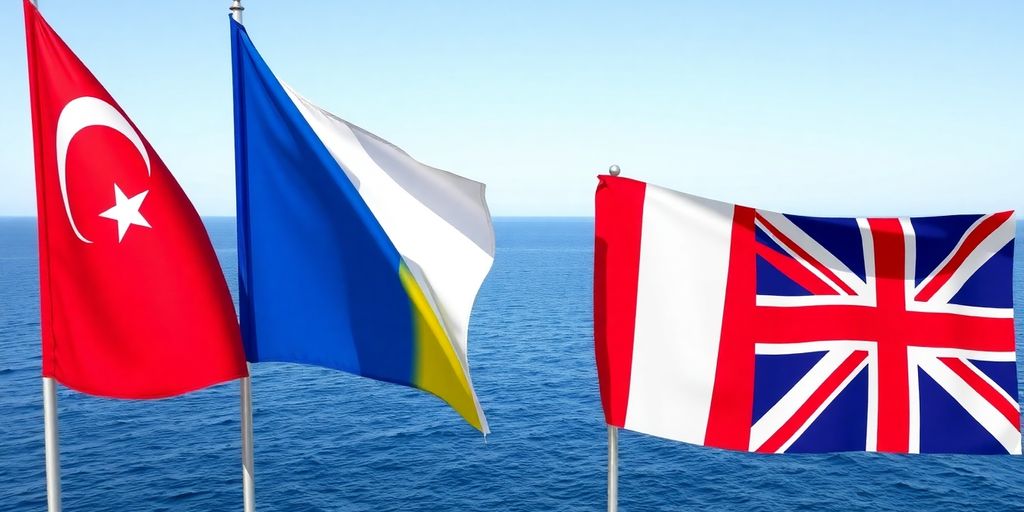Turkey recently hosted high-level military discussions focused on Black Sea security, involving representatives from Ukraine, France, and the United Kingdom. The talks, held on April 15-16, 2025, aimed to establish a framework for maritime security in the region following a potential cease-fire between Russia and Ukraine.
Key Takeaways
- Participants: Military leaders from Turkey, Ukraine, France, and the UK attended the talks, with no Russian representatives present.
- Focus: The discussions centered on naval security, including the establishment of a military presence in the Black Sea to ensure peace post-cease-fire.
- Turkey’s Role: Turkey’s naval strength and strategic position make it a key player in Black Sea security, as outlined by the Montreux Convention.
- Future Security Guarantees: The talks are part of a broader coalition effort to secure maritime navigation and compliance with any cease-fire agreements.
Background of the Talks
The Turkish Navy’s headquarters in Ankara served as the venue for these crucial discussions, which were described as a planning forum for a post-cease-fire agreement. Turkish officials emphasized that the meeting was not a negotiation with Russia but rather a coalition effort to enhance security in the Black Sea region.
Ukrainian President Volodymyr Zelenskyy highlighted the importance of these talks, stating that they are focused on ensuring maritime security and discussing the potential presence of a military contingent in the Black Sea. He noted, "This is not about ending the war; this is about what happens after the cease-fire—security guarantees."
Strategic Importance of the Black Sea
The Black Sea has become a focal point of military and geopolitical tensions, particularly due to the ongoing conflict between Russia and Ukraine. The region is vital for commercial shipping, including Ukraine’s grain exports, and ensuring safe navigation is critical for economic stability.
- Montreux Convention: This 1936 agreement regulates naval traffic in the Black Sea, limiting the presence of non-littoral states. Turkey, with its significant naval capabilities, is positioned to lead security efforts.
- Naval Operations: The discussions included plans for naval patrols to secure shipping routes, monitor cease-fire compliance, and clear mines that threaten navigation.
Future Implications
The outcomes of these talks could have significant implications for regional security and stability. With Turkey’s commitment to taking a leading role, the coalition aims to establish a framework that not only addresses immediate security concerns but also lays the groundwork for long-term peace in the Black Sea.
As military representatives from the involved nations continue to collaborate, the focus will remain on ensuring that any cease-fire is respected and that maritime operations can resume safely. The coalition’s efforts reflect a growing recognition of the need for cooperative security measures in a region marked by conflict and uncertainty.
In conclusion, the Black Sea security talks in Turkey represent a critical step towards establishing a cooperative framework for peace and stability in the region, with Turkey at the helm of these strategic discussions.
Sources
- Turkey Leads Efforts for Black Sea Stability, Crude Oil Prices Today | OilPrice.com.
- Planning For A Ukraine Cease-Fire, Turkey Hosts Talks On Black Sea Security, Radio Free Europe/Radio Liberty.
- Ukraine, UK, France and Turkey discuss Black Sea security, Zelenskiy says, Reuters.
- Turkey hosts Black Sea security talks with Ukraine, France, UK, Defense News.






